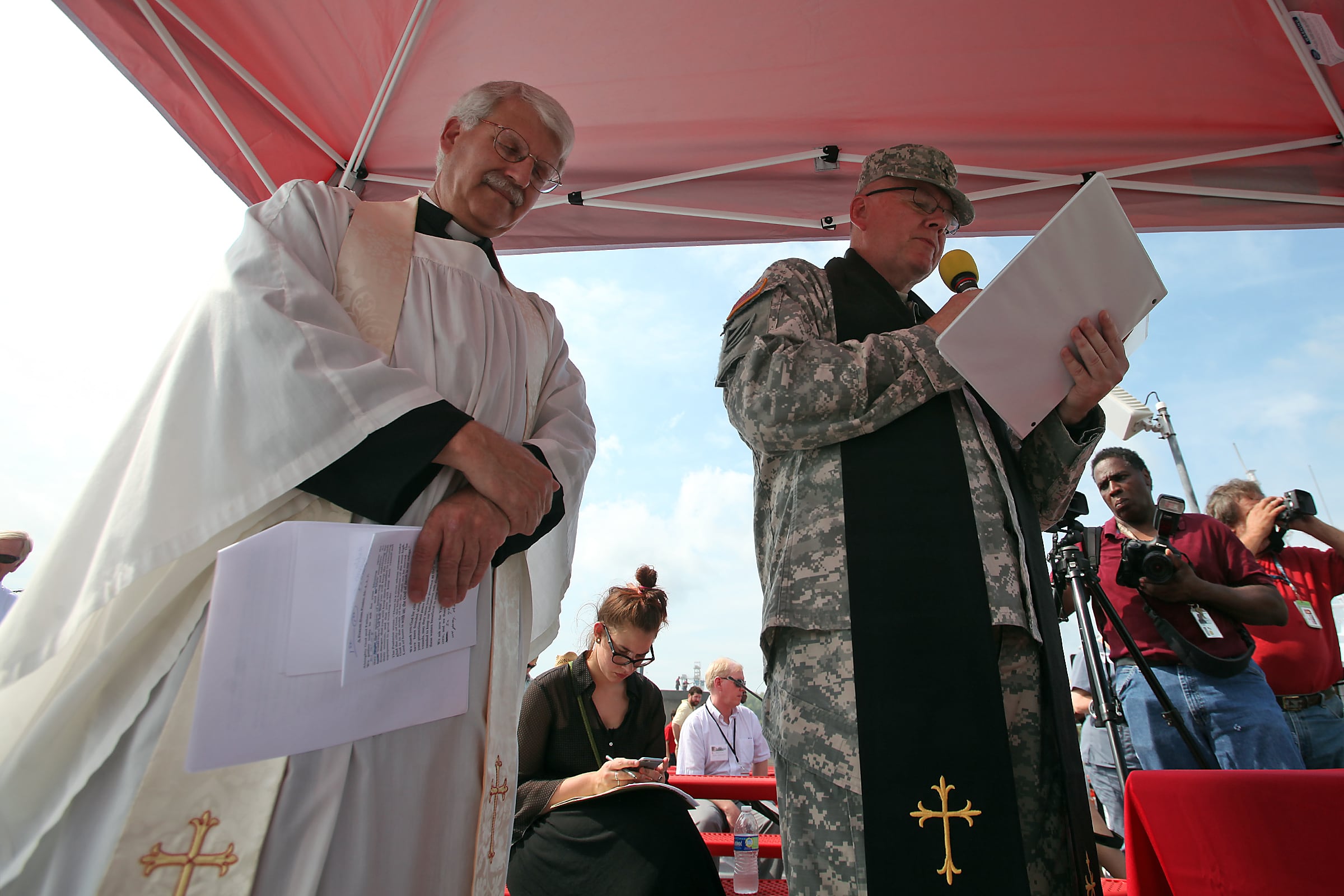WASHINGTON — White House Chief of Staff John Kelly lauded President Donald Trump for “bravely” calling the families of fallen soldiers this week and condemned criticism of the act as destroying a “sacred” pillar of American society.
“He called four people the other day and expressed his condolences in the best way he could,” said Kelly, a former Marine Corps general whose own son was killed in Afghanistan in 2010.
His emotional comments came during a White House press conference on Thursday, after four days of controversy over Trump’s handling of the deaths of four special forces soldiers in Niger earlier this month.
The president first drew criticism for waiting nearly two weeks to publicly address the deaths, then for implying that was being more sensitive than previous commanders-in-chief in reaching out to fallen families. After saying that former President Barack Obama didn’t call troops’ next of kin, he told media “you could ask Gen. Kelly” about the issue.
When he did make calls to the four families on Tuesday, he was blasted by the family of Sgt. La David Terrence Johnson and congresswoman Rep. Frederica Wilson, D-Fla., for saying that the dead soldier “knew what he signed up for.”
Pentagon officials have avoided commenting on the ongoing controversy. Earlier on Thursday, when asked about the issue, Defense Secretary James Mattis replied that “we honor our fallen in America and that’s all I’ll say.”
Kelly on Thursday angrily responded to Wilson’s accusations by accusing her of twisting the president’s comments for personal gain.
“It stuns me that a member of Congress would have listened in on that conversation,” he said. “I thought at least that was sacred.”
Wilson called the call insensitive and hollow. Kelly called her characterization ridiculous.
Kelly said he advised Trump not to make the calls to the grieving families, in part because of the difficulty of the moment, and in part because the most meaningful calls he received after his own son’s death came from others who served alongside him.
“If you’re not in the family, if you’ve never worn the uniform, if you’ve never been in combat, you can’t even imagine how to make that call,” he said.
Trump felt it important to reach out to the families anyways. He asked Kelly for advice on what to say.
“I said to him: Sir, there is nothing you can do to lighten the burden on these families. But let me tell you what I tell them. Let me tell you what my best friend, [Marine Gen.] Joe Dunford told me when he was my casualty officer.
“He said: ‘Kell, he was doing exactly what he wanted to do when he was killed. He knew what he was getting into by joining that 1 percent. He knew what the possibilities were, because we’re at war. When he died – and the four cases we’re talking about, Niger, and my son’s case in Afghanistan – when he died, he was surrounded by the best men on this earth, his friends.’”
“That’s what the president tried to say to four families the other day.”
Kelly did not address other issues related to the latest controversies, including a Washington Post report that the president has not reached out to several other families of fallen troops and offered but did not send a $25,000 check to one father of a dead soldier.
He also declined to give specifics on the U.S. operation in Niger, but did say all those serving overseas should be recognized for their bravery and sacrifice.
“At the end of the day, these young people … put on the uniform, go where we say to protect the country,” he said. “They’re helping those partner be better at fighting ISIS in North Africa, so we don’t have to send our soldiers and Marines there in the thousands.”
He also implored the public to not let the recent controversies overshadow that effort. Advocates for Gold Star families have offered similar pleas in recent days
“I still hope as you write your stories, let’s not let this last thing that is held sacred in our society — a young man, young woman going out and giving his or her life for this country — let’s try to somehow keep that sacred,” he said.
Reporter Tara Copp contributed to this story.
Leo covers Congress, Veterans Affairs and the White House for Military Times. He has covered Washington, D.C. since 2004, focusing on military personnel and veterans policies. His work has earned numerous honors, including a 2009 Polk award, a 2010 National Headliner Award, the IAVA Leadership in Journalism award and the VFW News Media award.




